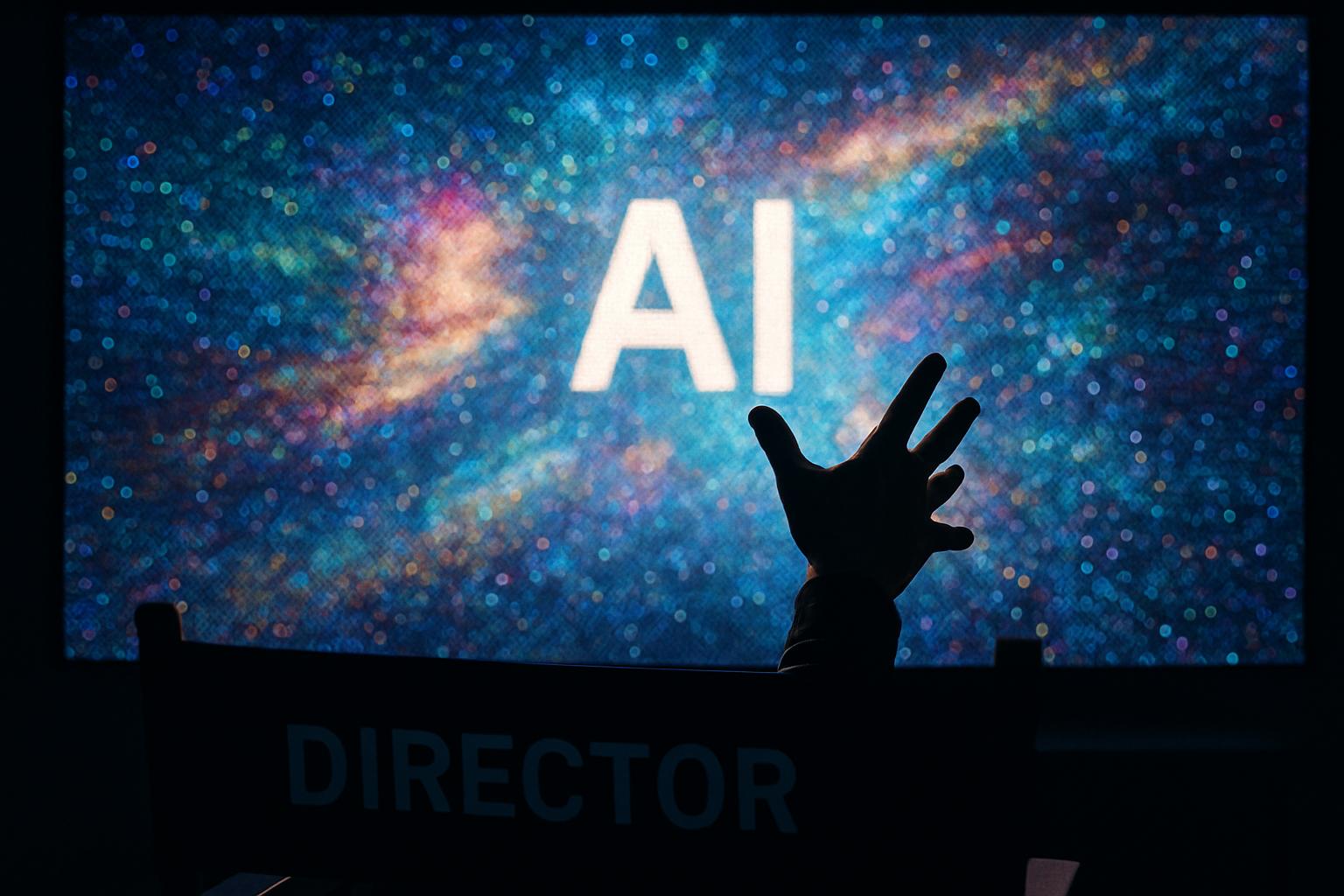The announcement of the winners of the PixVerse AI Film Global Submission marks a pivotal moment in the rapidly evolving domain of AI-driven video creation. This global competition, revealed in a September 2025 Twitter post by PixVerse, attracted a diverse array of talented creators who harnessed artificial intelligence to craft innovative films. The event not only highlighted the technological leaps achieved in generative AI models—capable of producing high-quality video content from mere text prompts—but also underscored AI's transformative impact on the creative industries. This shift democratizes access to professional-grade production tools, allowing independent filmmakers and smaller studios to compete with traditional industry powerhouses without the need for towering budgets.
The growth trajectory of AI in media and entertainment is marked by staggering projections. Market analysis from Statista reveals that this sector was valued around $10.4 billion in 2023, with expectations to surge to nearly $99.48 billion by 2030, reflecting a robust compound annual growth rate of 26.9%. Such expansion is driven by cutting-edge innovations in neural networks that can manage intricate tasks such as scene composition, character animation, and realistic physics simulations. Events like the PixVerse competition not only showcase these technical proficiencies but also cultivate a community dedicated to the ethical use of AI in creative processes. This addresses pressing concerns regarding originality and copyright that have emerged amid the proliferation of AI-generated content. The competition builds upon earlier breakthroughs, notably Google's Veo model unveiled in May 2024, which set new benchmarks in video coherence and length, elevating standards for AI-generated films.
In parallel to these creative advancements, business opportunities are flourishing. The PixVerse winners announcement opens avenues for AI integration across film production, advertising, and content creation sectors. Subscription-based platforms, such as Runway ML, exemplify monetization models where users access sophisticated AI tools, reportedly generating revenues exceeding $50 million by mid-2024. Industry analyses, including a 2023 Deloitte report, suggest that AI incorporation can slash production costs by up to 70%, a compelling incentive for adoption. Hollywood studios like Warner Bros. are experimenting with AI applications spanning scriptwriting to visual effects, hinting at emergent hybrid human-AI collaborations aimed at enhancing creative efficiency and output. Meanwhile, entrepreneurial ventures are carving niche spaces by developing genre-specific AI tools, catering to the rising demand for personalised content, from horror to documentary filmmaking. Amidst this burgeoning landscape, regulatory frameworks like the European Union's AI Act, effective since August 2024, necessitate transparency in AI-generated content to curb misinformation. Ethical guidelines from bodies such as the AI Alliance recommend watermarking AI outputs to uphold trust and provenance.
Technically, PixVerse's AI platform likely employs diffusion models akin to those in Stable Diffusion for video, augmented by temporal consistency algorithms to produce seamless video sequences. Research published by Tsinghua University in 2023 supports the viability of such models for coherent video synthesis. Despite their power, these models require substantial computational resources, often involving costly GPU clusters. However, cloud computing services like Amazon Web Services have reduced operational expenses by approximately 30% through 2024 updates, making these technologies more accessible to a broader audience. The future promises multimodal AI integration, incorporating text, audio, and video, with innovations like Meta's Movie Gen model, introduced in October 2024, facilitating synchronized soundscapes alongside visuals. Privacy considerations remain paramount, with stringent adherence to GDPR norms guiding data use in training datasets. Predictions for 2026 speculate that AI-generated films might contend for prestigious awards, challenging traditional definitions and categories, while ethical scholarship advises bias mitigation via diverse training data sets.
OpenAI's recent release of Sora, a highly publicised video generation model, exemplifies these trends. Available to ChatGPT Plus and Pro users, Sora produces realistic videos up to 20 seconds long and supports inputs ranging from text to images and videos. A storyboard feature enables users to meticulously craft videos frame-by-frame. Planned integration of Sora into ChatGPT aims to broaden accessibility, with tailored pricing strategies anticipated early next year. However, the model remains unavailable in regions including the EU, Switzerland, and the UK due to regulatory constraints and content safeguarding measures. Technically, Sora operates as a diffusion model that generates videos by transforming noise into coherent frames, with temporal foresight mechanisms ensuring subject consistency across sequences. This technology represents a substantial leap in AI video generation, akin to OpenAI's image-generator DALL·E, and contributes to the broader movement of AI as both a tool and catalyst for innovation in the creative sectors.
In summary, the recognition of PixVerse AI Film Global Submission winners encapsulates the dynamic convergence of technological progress, creative expression, and ethical considerations within AI-driven video production. By promoting innovation and fostering an engaged, responsible creator community, such initiatives highlight AI's expanding role not only in film but across education, advertising, and entertainment industries worldwide. As AI models grow increasingly sophisticated and integrated, the landscape of content creation is set for profound transformation, offering both unprecedented opportunities and challenges across the cultural and commercial spectrum.
📌 Reference Map:
- Paragraph 1 – [1], [2]
- Paragraph 2 – [1], [2]
- Paragraph 3 – [1]
- Paragraph 4 – [1], [7]
- Paragraph 5 – [3], [4], [5], [6], [7]
Source: Noah Wire Services
